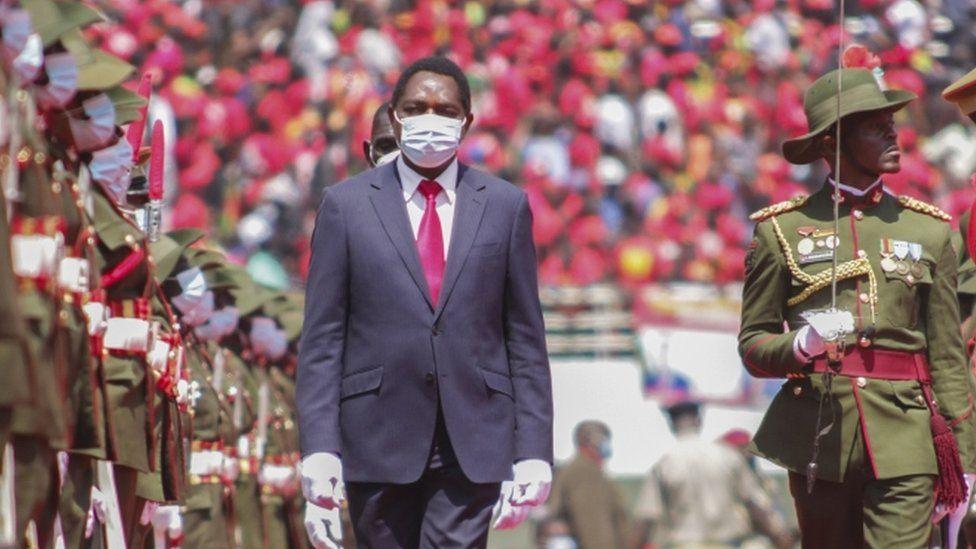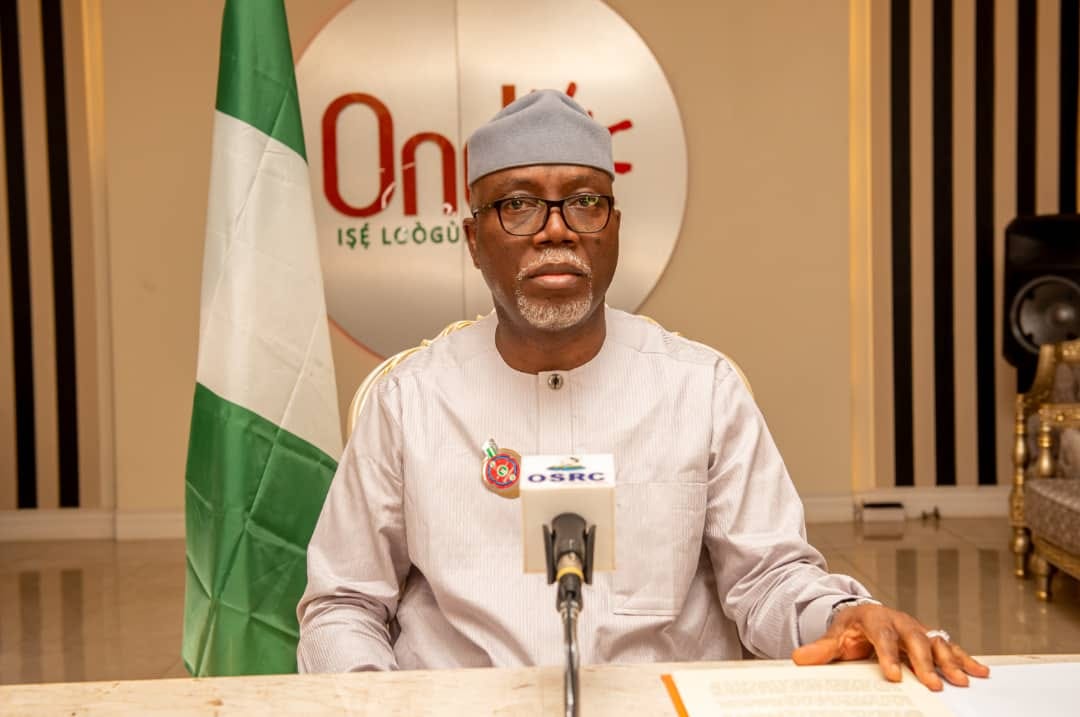Zambia’s newly-elected president, Hakainde Hichilema, has been sworn into office after pulling off a stunning rare victory for an African opposition leader.
Hichilema was inaugurated Tuesday morning at a ceremony attended by leaders such as Tanzania President Samia Suluhu Hassan and Malawi leader Lazarus Chakwera.
Zambia’s second female Vice President Mutale Nalumango was also sworn in during the ceremony.
Hichilema defeated outgoing President Edgar Lungu in a landslide by almost one million votes in his sixth attempt at becoming ruler of Zambia.
It was a stunning turnaround for the politician known as HH — Hichilema spent several months in prison in 2017 for what was widely seen as politically motivated treason charges. The charges were dropped under intense international pressure.
After initially indicating he may challenge the result, Lungu addressed the nation following the elections, saying: “Based on the revelations issued at final results, I will comply with the constitutional provisions for a peaceful transition of power.”
Despite conceding defeat early, Lungu was booed by some of the crowd as he made his way to the stage at the packed Heroes stadium in the capital Lusaka to hand over power.
Hichilema called Tuesday “a new dawn in Zambia,” in a tweet ahead of the ceremony. “As I sit here in our vehicle being driven to Heroes Stadium, I see the love, the joy and the jubilation as people line the streets on our way. I’m overwhelmed with gratitude. I love you all so much,” he added.
The New President, Hakainde Hichilema also pledged to tackle Zambia’s “unsustainable” debt, lamenting that the national budget was overwhelmed by the cost of servicing it.
Hichilema spoke during his swearing-in as the southern African country’s seventh president, after a landslide election victory earlier this month over incumbent Edgar Lungu.
It marked Zambia’s third peaceful change of power to an opposition party since independence from Britain in 1964.
The new leader, who lost five previous presidency attempts, must now revive an economy weighed down by debt, unpredictable world commodity prices and COVID-19. Zambia became Africa’s first pandemic-era sovereign default in November.
“Over the last decade…, the debt situation has become unsustainable, reducing the country’s capacity to invest,” a masked Hichilema told well-wishers packed into a stadium in the capital, Lusaka after performers danced to loud drum beats in celebration.
“Our national budget has been overwhelmed by debt servicing…We must restore this (previous) situation.”
To do that, the 59-year-old former CEO of an accounting firm faces the unenviable task of striking a deal with a diverse bunch of rival creditors.
Of Zambia’s $12 billion external debt, some $3 billion in Eurobonds, $3.5 billion in bilateral debt, $2.1 billion is owed to multilateral lending agencies, such as the IMF, and along with another $2.9 billion of commercial bank debt.
A quarter of the total is held by either China or Chinese entities via deals shrouded in secrecy clauses – which makes negotiations for IMF relief particularly tough.
“Our focus over the next five years will be restoring macroeconomic stability,” Hichilema said. “We will pay special attention to lowering the fiscal deficit, reducing public debt and restoring market confidence in our country.”
In a sign that confidence in the major copper-mining country may be returning, Zambia’s dollar-denominated sovereign bonds have climbed steadily since Hichilema’s surprise victory, reflecting optimism that its debt crisis can be resolved.
He added that the country was facing a lot of challenges but his government would work to revive the economy, which he said had been “overwhelmed by debt servicing, emoluments and consumption” leaving little room for investment for growth.
“We will pay special attention to lowering the fiscal deficit, reducing public debt and restoring social and market confidence,” he said.
“To the jobless youths, a new dawn is here where you will be skilled and find an opportunity to work or do business in an economy that we will revive,” he said.
President Hichilema said that there would be “zero tolerance for corruption”, vowing to fight “the scourge” professionally and not be vindictive.
He added that his government would work to deal with the high cost of living to ensure food is available and affordable.
Hinting at the mistreatment meted against him by the outgoing president, he said “it was a new dawn”, adding “time has come for all Zambians to be truly free”.
He said the media should work freely without fear, and that his cabinet would be inclusive because he believes “diversity is a strength”.
In his speech, President Hichilema thanked his predecessor for facilitating a smooth transition to his administration but added that this was “not a transfer of power but a transfer of leadership,” saying power resides in Zambians.
This was the third time there had been a peaceful and democratic transfer of the presidency from the candidate of one party to another. This was something that was of great credit to Zambia, President Hichilema said.
“Democracy is the way to go – for Zambia, the people of Africa, and the world,” he said.
Afterward, President Hichilema released hundreds of balloons into the sky over Heroes Stadium – a change from the last inauguration when doves were used and proved problematic when they refused to fly off.


 Naira4 weeks ago
Naira4 weeks ago
 News3 weeks ago
News3 weeks ago
 Education4 weeks ago
Education4 weeks ago
 Social Media4 weeks ago
Social Media4 weeks ago
 Technology4 weeks ago
Technology4 weeks ago
 Investment4 weeks ago
Investment4 weeks ago
 Dividends4 weeks ago
Dividends4 weeks ago
 Economy4 weeks ago
Economy4 weeks ago














